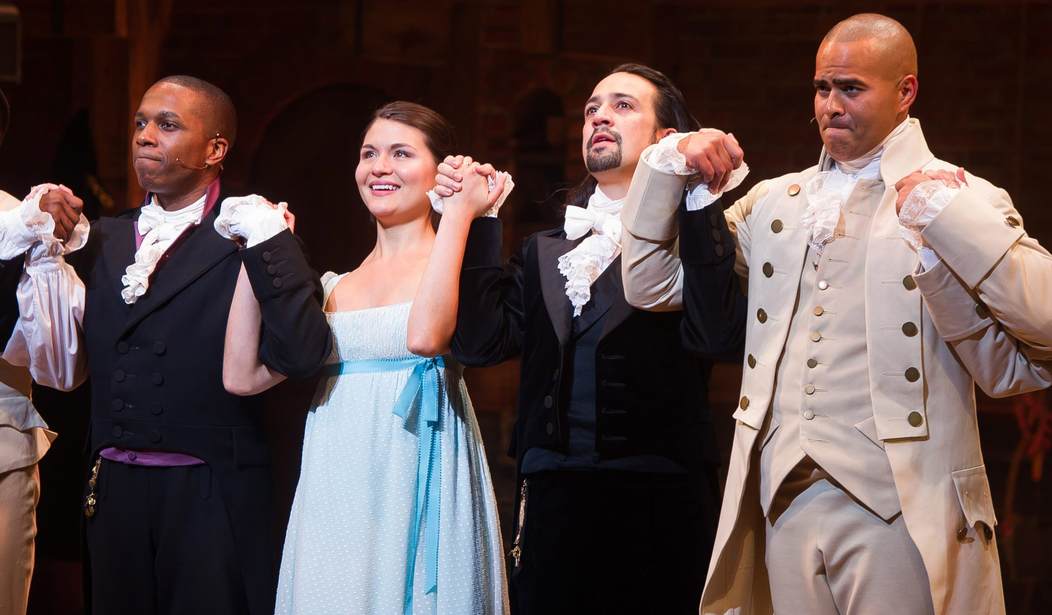The kerfuffle over Vice President-elect Mike Pence’s run-in with the cast and audience of “Hamilton” provokes me to raise another issue: I won’t go to see “Hamilton.” I don’t like rap in any form, even in the sterile, commercialized version in the popular musical. Poetry elicits powers of mind more intense and elevated than quotidian thought, and it does so by forcing us to think of poetic rhythm at a higher level. By contrast, rap imposes an unchanging sing-song rhythm that does nothing to provoke us to think in this way.
In poetry as well as non-verbal music, regularity (of meter, rhyme, voice-leading) exists to create expectation. Without expectation there can be no surprise, and it is surprise that awakens our higher powers of mind and evokes a sense of wonder.
There are many aspects to poetry, but the one that lends itself most readily to analysis was the subject of Book Six of St. Augustine’s De Musica, the first treatise (to my knowledge) asserting the existence of a hierarchy of numbers including, at the peak, “numbers of the intellect.” I argued some years ago in First Things that a red thread connects Augustine’s treatise on poetic rhythm and meter to the scientific revolution of the 17th century and the discovery of calculus in particular.
Augustine asserts that some faculty in our minds makes it possible to hear rhythms on a higher order than sense perception or simple memory, through “judgment.” What he meant quite specifically, I think, is the faculty that allows us to hear two fourteeners in the opening of Coleridge’s epic:
It is an ancient Mariner,
And he stoppeth one of three.
“By thy long grey beard and glittering eye,
Now wherefore stopp’st thou me?”Read by a computer’s text-to-voice program, this will not sound like what Coleridge had in mind. A reader conversant with English poetry intuitively recognizes the two syllables “And he” as a replacement for the expected first syllable in the first iamb of the second line. The reader will pronounce the first three syllables, “And he stoppeth,” with equal stress, rather like a three-syllable spondee, or a hemiola (three in place of two) in music. Our “numbers of memory” tell us to expect ballad meter and to reinterpret extra syllables as an expansion of the one expected. The spondees in the second fourteener, moreover, grind against the expected forward motion, emulating the Mariner’s detention of the wedding guest.
The subtle (and sometimes not-so-subtle) rhythmic shifts in Coleridge’s poem force us to reflect on the content. There are innumerable examples. Consider Keats’ sonnet on first reading Chapman’s translation of Homer, a version contemporaneous with Shakespeare that employs ballad meter (for The Iliad) and iambic pentameter (for The Odyssey). It begins:
Much have I travell’d in the realms of gold,And many goodly states and kingdoms seen;Round many western islands have I beenWhich bards in fealty to Apollo hold.Oft of one wide expanse had I been toldThat deep-brow’d Homer ruled as his demesne;Yet did I never breathe its pure sereneTill I heard Chapman speak out loud and bold:
Or consider Shakespeare’s Sonnet 116 (“Let me not to the marriage of true minds admit impediments”), which claims: “Love is not love which alters when it alternation finds,” and then intones: “Love’s not Time’s fool.” With these two spondees the rhythm comes to a dead stop, and time ceases to rule: We are left with love’s metrical triumph.
That is why I won’t see “Hamilton.” I have no time for rap. If Moses came down from Mt. Sinai and rapped the Pentateuch, I would read the Targum.










Join the conversation as a VIP Member